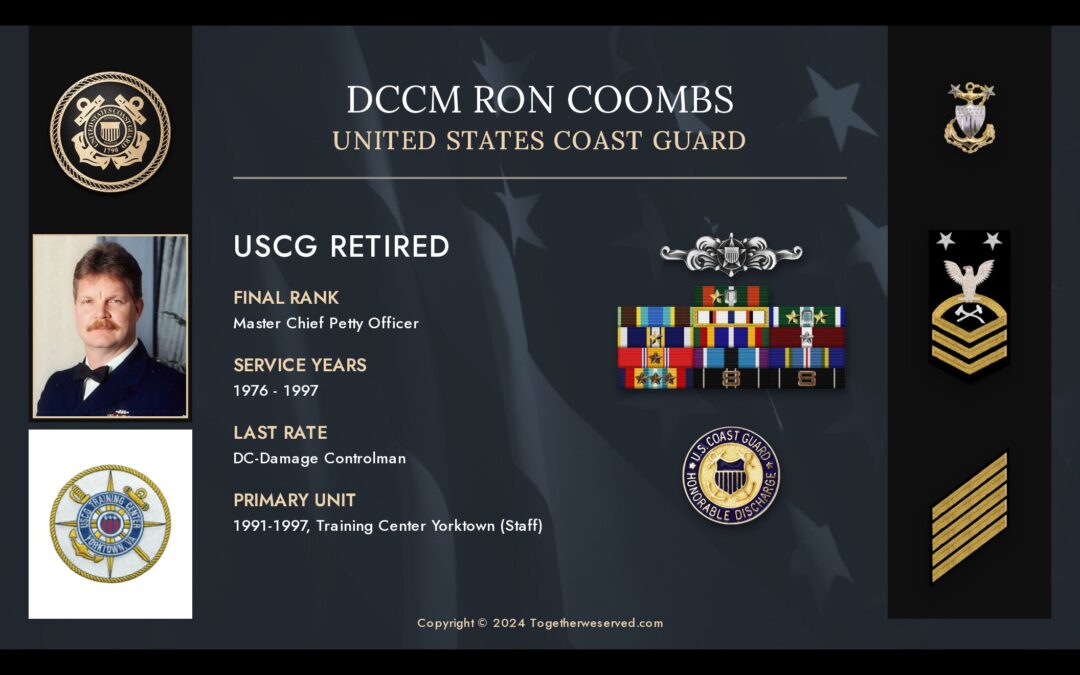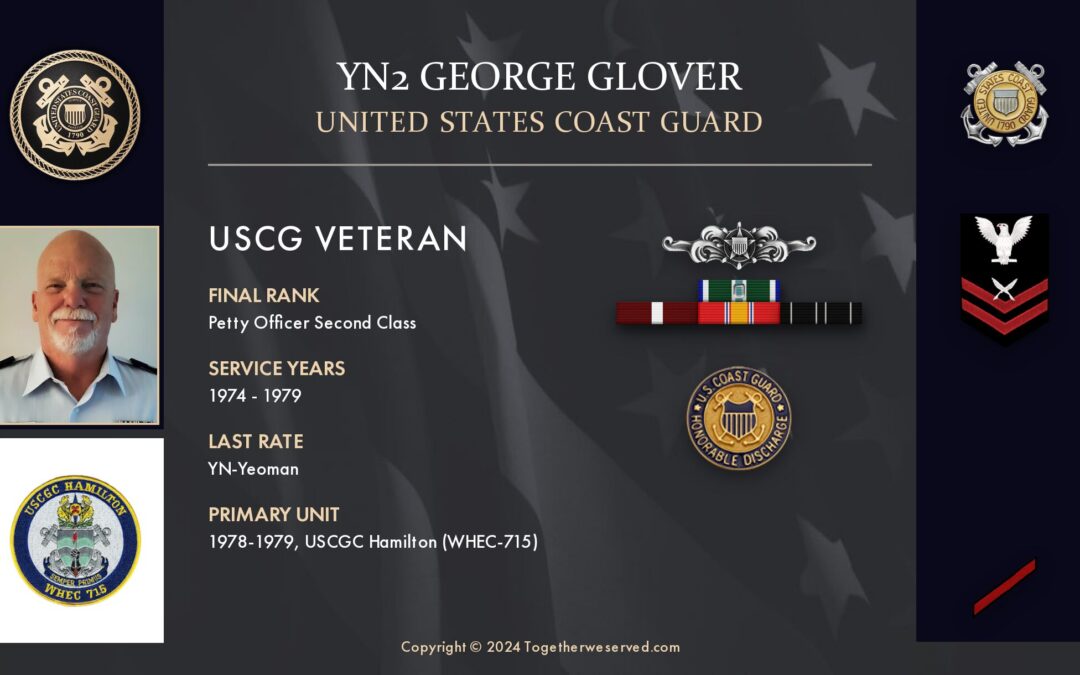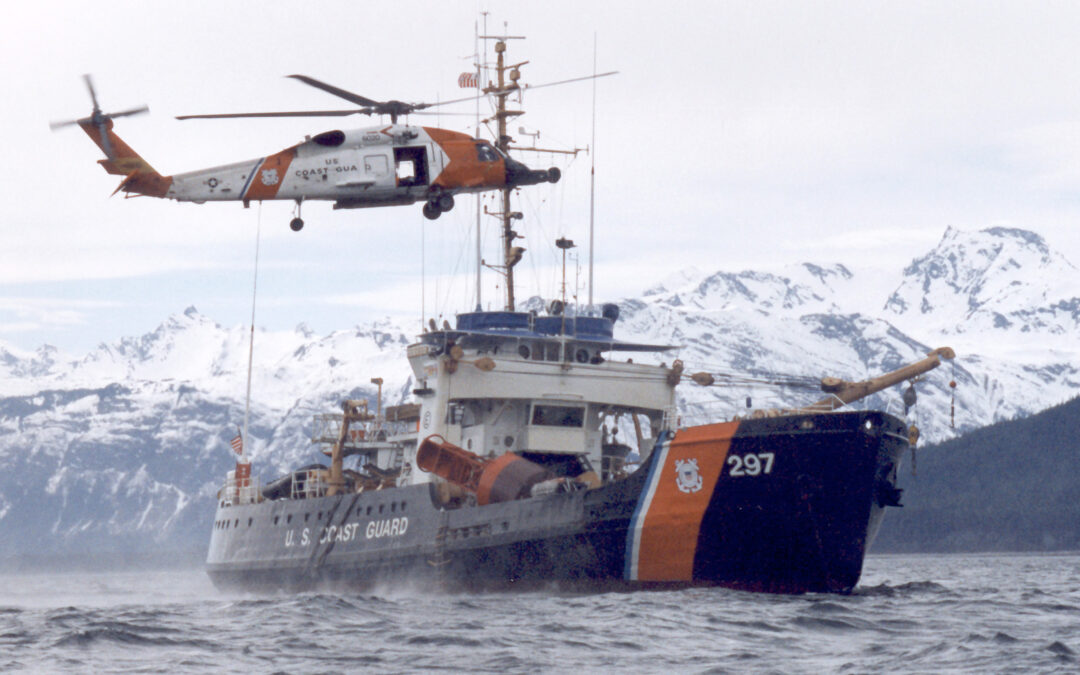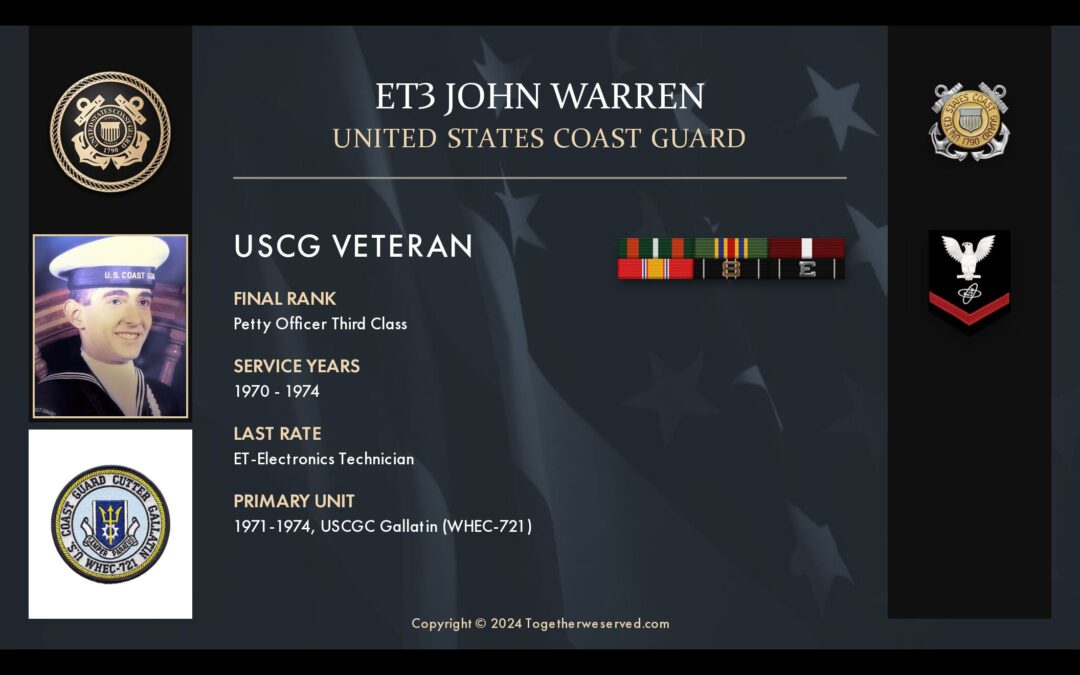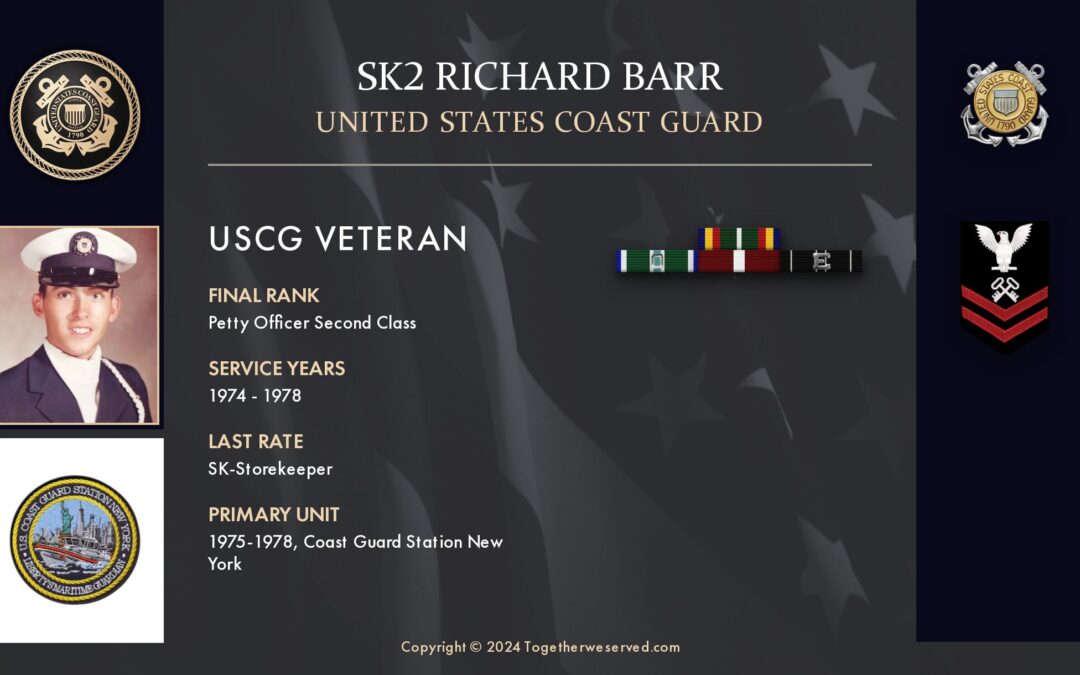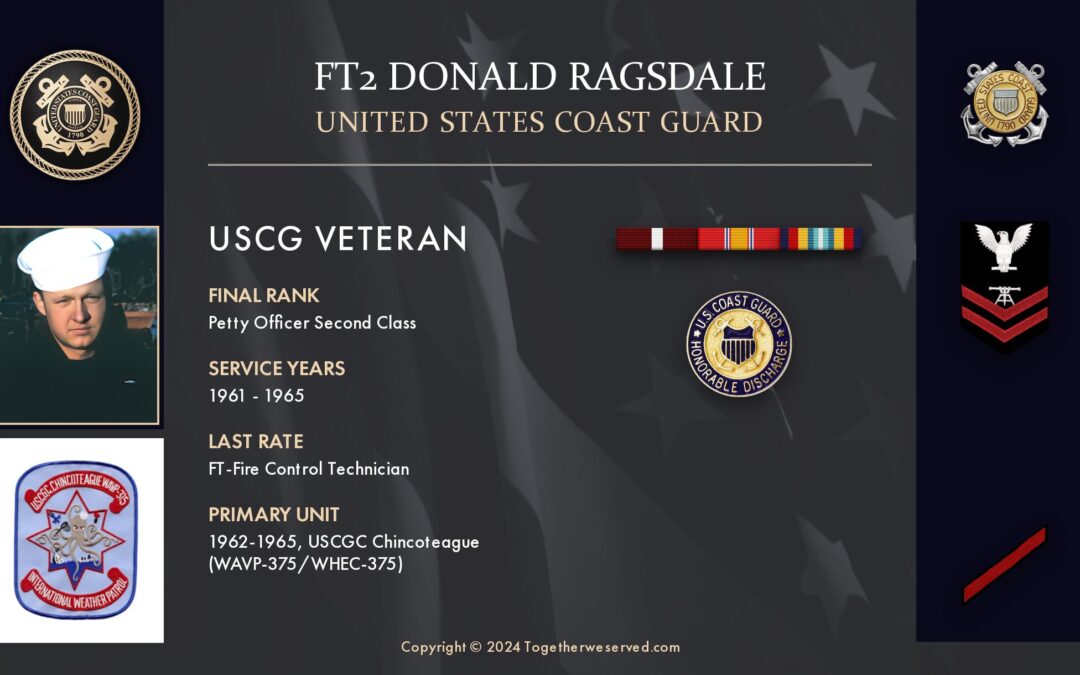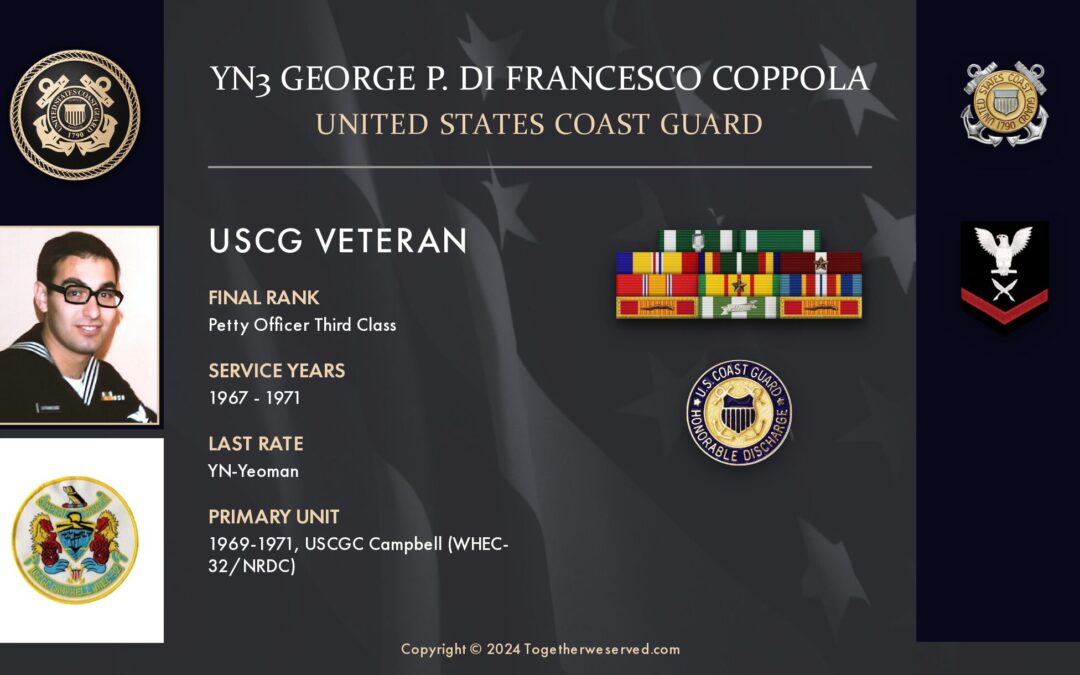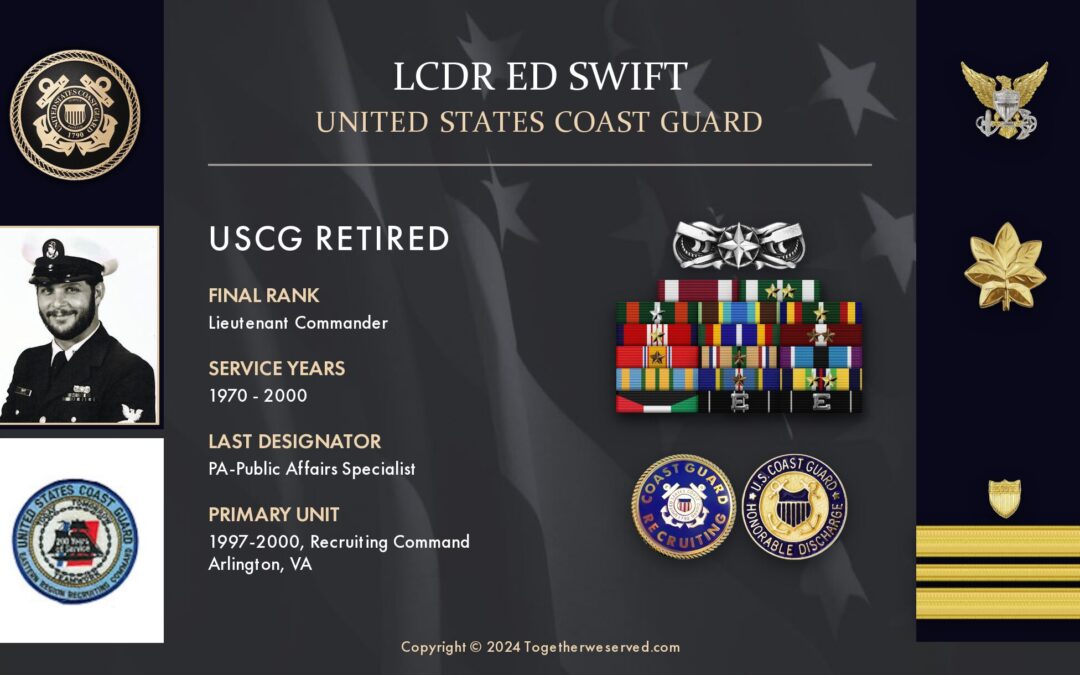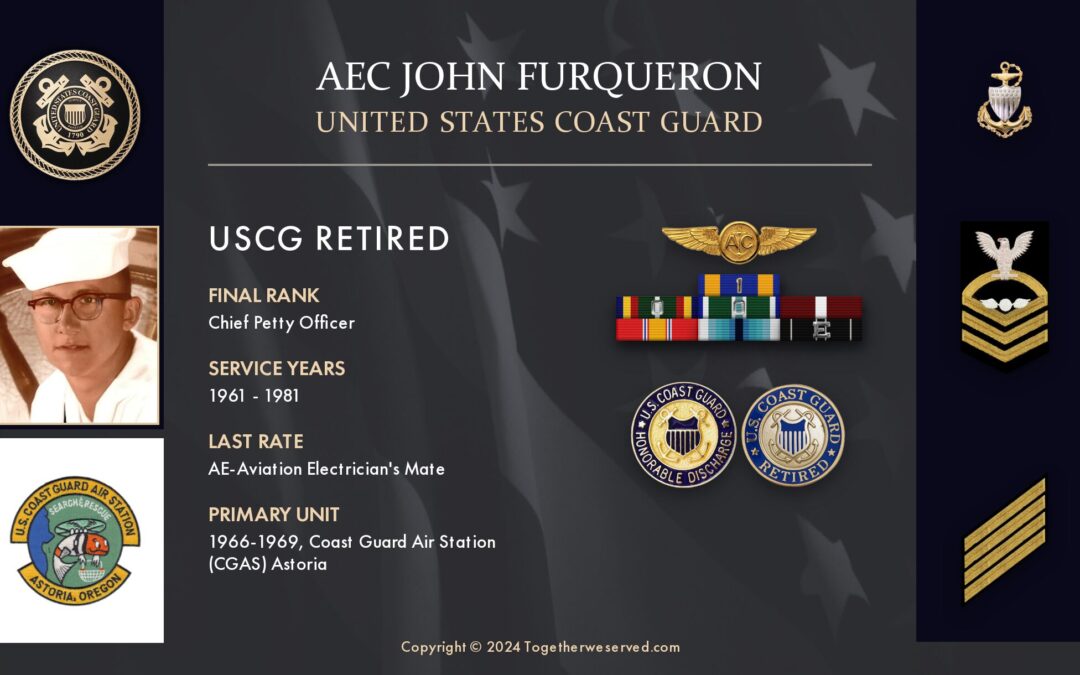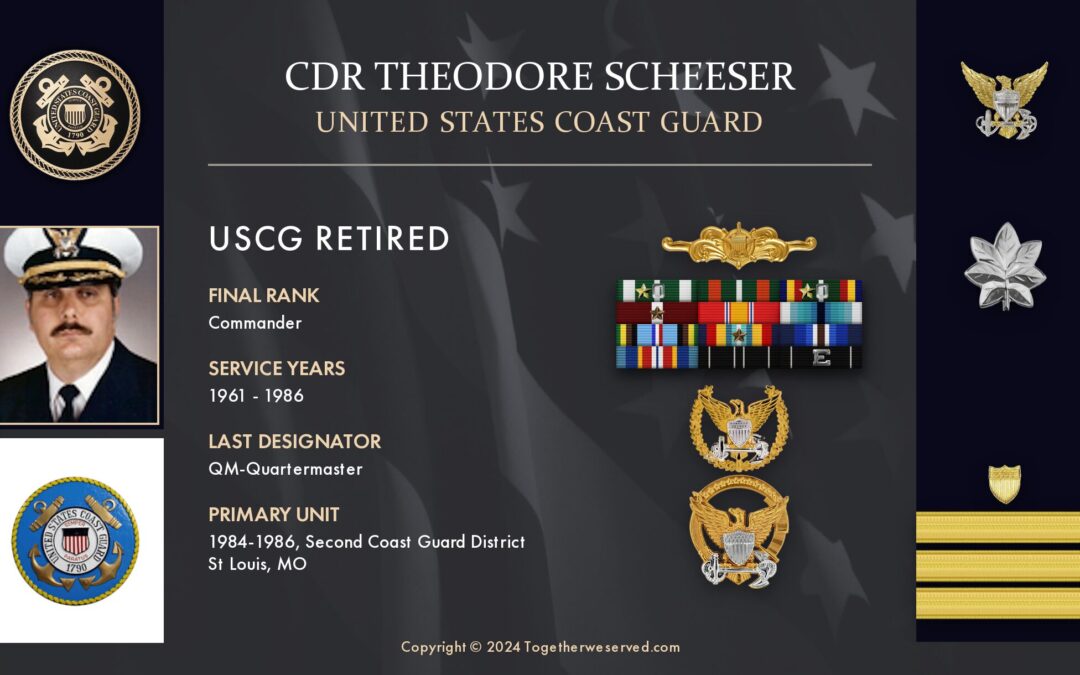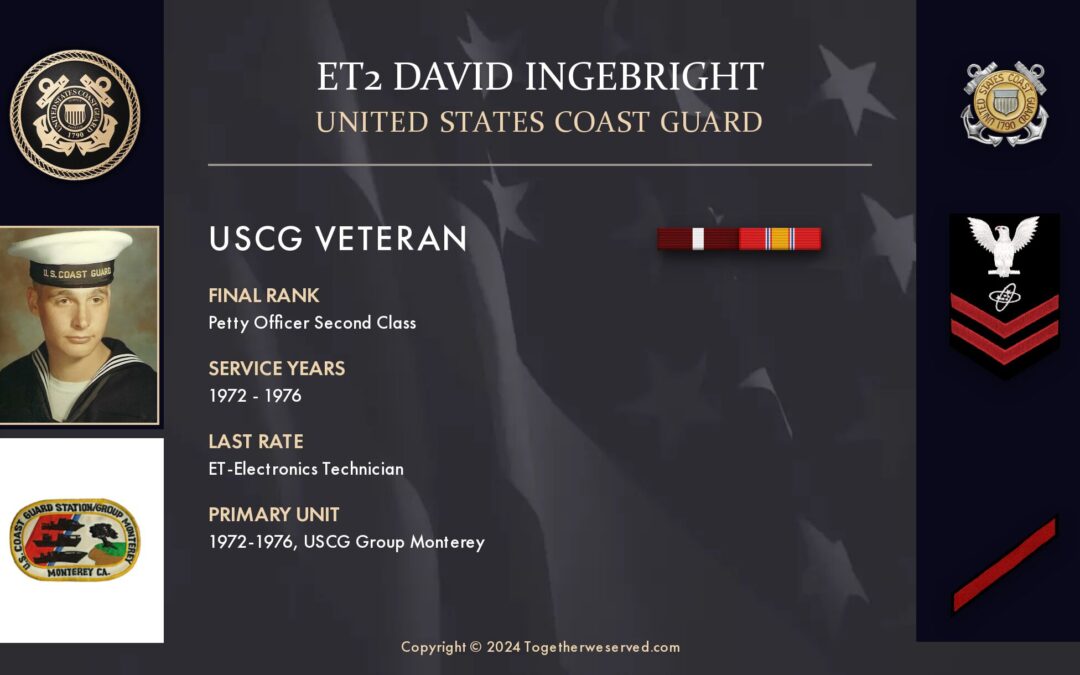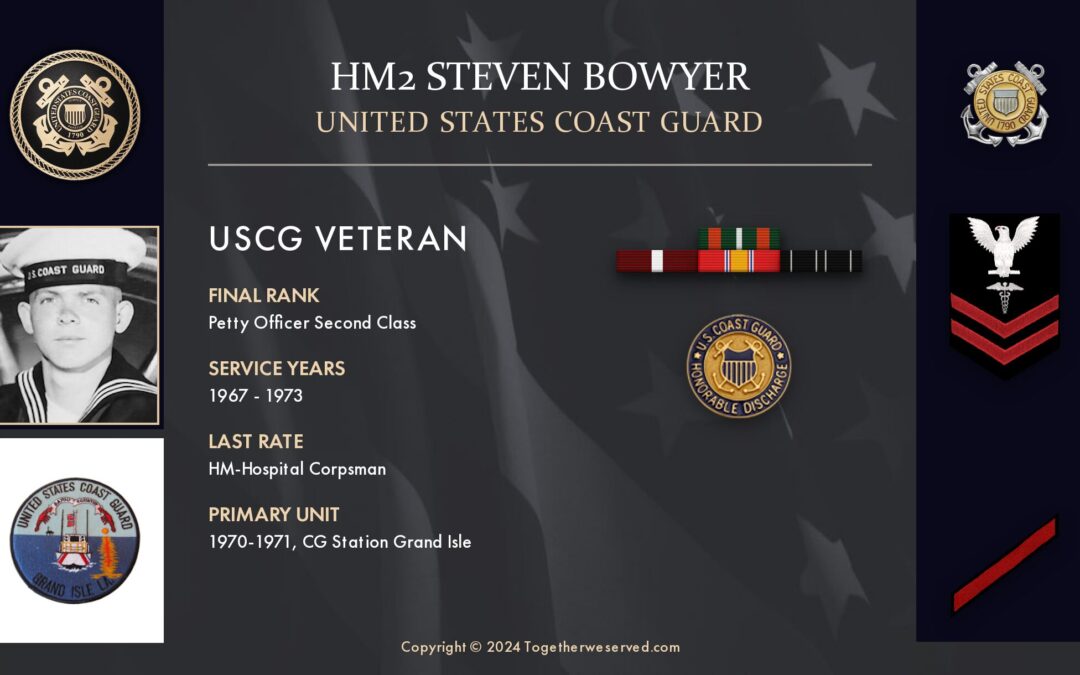I grew up in the airline industry, and the Vietnam War was still going on. I wanted college, and the GI bill was the only way to get there, so I went service shopping down on 7th Street in Ft. Worth, Texas.
After talking with the Navy and Air Force, I stepped out a side door and saw a small fold-out sign that said “Coast Guard.” I had no idea what it was. Two men were crammed into a small room, and I would run into one again ten years later.
The helicopters caught my eye, and I signed up. I never did get into aviation, and it turns out I like ships. Who knew? I had no fear of boot camp (Alameda) until we were told we were all going on a ship heading for Vietnam. We didn’t go. The war ended, and we were sent out to save America.
